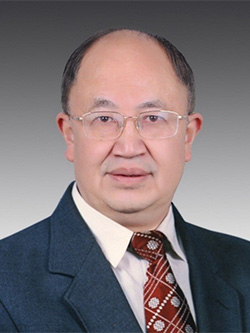
Prof. Jinliang Xu
School of Energy Power and Mechanical Engineering
North China Electric Power University
xjl@ncepu.edu.cn
Dr Jinliang Xu is professor in School of Energy Power and Mechanical Engineering at North China Electric Power University, and has been the Director of Key Laboratory of Power Station Energy Transfer Conversion and System, China. He has over thirty years of experience in the field of multiphase flow and heat transfer. He has had visiting positions in Hongkong (China), USA, Singapore and UK. He led the National Key R&D Program of China and the National Basic Research Program of China for 10 years. Dr Jinliang Xu is active in the field of multiphase flow. He was the chair or co-chair for a set of academic conferences such as 4th Micro and Nano Flows Conference (University College London, UK, 2014), IHTS 2014 (International Heat Transfer Symposium 2014, Beijing) and first Int. Conference on supercritical CO2 power system (2018, Being) etc. He is the editor of the journals of Thermal Science and Engineering Progress, Frontiers in Heat pipe, Water, Energies. He is the guest editor for the special issues of Energy and Applied Thermal Engineering. He presented 40 plenary/keynote speeches in international conferences, and has been the reviewer for more than 40 journals. He was the best reviewer of the Journal of Heat Transfer, ASME in the fiscal year of 2012. As the corresponding author, he published more than 300 scientific papers and co-authored two books. Dr Jinliang Xu was named as the "Yangtze River Scholar" Professor by the National Ministry of Education, China in 2013. He received the Natural Science Award of the Ministry of Education, China (first grade), and the Distinguished Contribution Award from Chinese Society for Electrical Engineering (2021).
Title: Pseudo-phase change theory and applications for supercritical fluids
Supercritical fluids widely exist in nature and engineering facilities. Classically, supercritical fluid is treated as single-phase fluid without phase change and interface. Hence, theories to describe flow and transfer are different in subcritical pressure and supercritical pressure. In 1960s, scientists found that wall temperatures can have overshoot excursion when they studied the forced convection heat transfer in tubes using supercritical fluid of water. This phenomenon is similar to that takes place in subcritical pressure. Thus, the term of “pseudo-boiling” was called to make a connection between the two domains of pressures, but the definition and content of pseudo-boiling has not been given until recently. In the past half century, engineers have been using the single-phase fluid theory to deal with fluid flow and heat transfer in supercritical pressure, introducing larger uncertainties when comparing with experiments. The design and operation of various heat exchangers operating in supercritical pressure rely on experiments, due to the lack of reliable theoretical predictions.
In this presentation, we summary the key points that have been investigating regarding the pseudo-phase change heat transfer in supercritical pressure conducted at North China Electric Power University, China. We abandoned the single-phase fluid assumption in supercritical pressure, but instead proposed the pseudo-phase change theory framework. In microscopic level, bubble-like and multi-phase feature of supercritical fluid are observed and analyzed, by using molecular dynamics simulation. A comprehensive measurement system was set up, integrating optical fibre, precise thermocouple detector and high-speed visualization. We found two modes of pseudo-phase change: pseudo-evaporation with evaporation at flat interface, and pseudo-boiling with periodic bubble-like nucleation, growth and collapse. On the basis of these observations, we proposed the three-regime model (liquid-like, two-phase-like and vapor-like). To characterize the three-regimes, the pseudo-phase change temperature, enthalpy, and vapor mass quality are established. A set of non-dimensional parameters were proposed to describe the interactions of mass, momentum and energy between liquid-like phase and vapor-like phase. Critical condition for the onset of heat transfer deterioration and heat transfer coefficients are developed using the pseudo-phase change theory. Significantly improved prediction accuracy has achieved compared with those using the single-phase fluid theory.